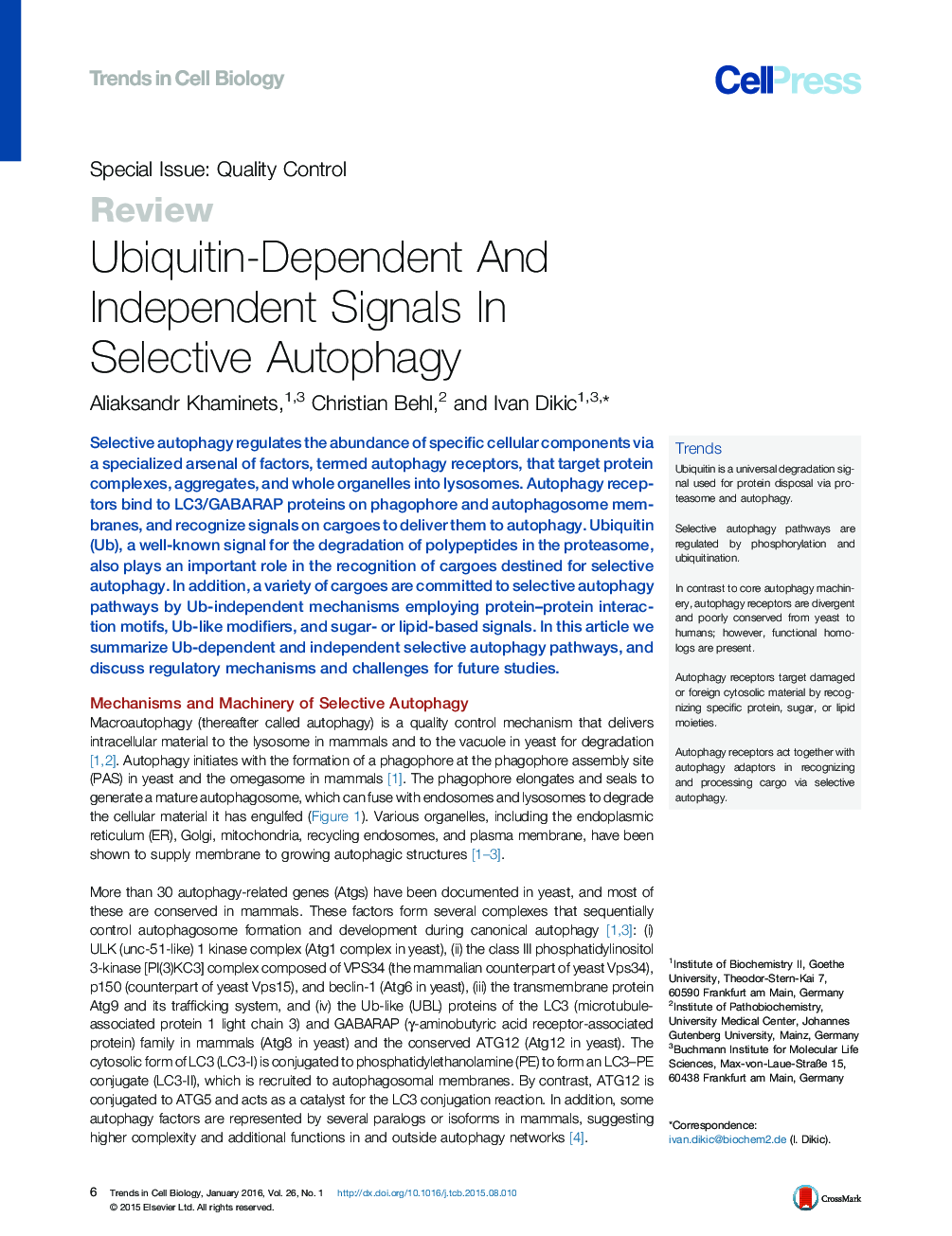| کد مقاله | کد نشریه | سال انتشار | مقاله انگلیسی | نسخه تمام متن |
|---|---|---|---|---|
| 2204325 | 1100769 | 2016 | 11 صفحه PDF | دانلود رایگان |

Selective autophagy regulates the abundance of specific cellular components via a specialized arsenal of factors, termed autophagy receptors, that target protein complexes, aggregates, and whole organelles into lysosomes. Autophagy receptors bind to LC3/GABARAP proteins on phagophore and autophagosome membranes, and recognize signals on cargoes to deliver them to autophagy. Ubiquitin (Ub), a well-known signal for the degradation of polypeptides in the proteasome, also plays an important role in the recognition of cargoes destined for selective autophagy. In addition, a variety of cargoes are committed to selective autophagy pathways by Ub-independent mechanisms employing protein–protein interaction motifs, Ub-like modifiers, and sugar- or lipid-based signals. In this article we summarize Ub-dependent and independent selective autophagy pathways, and discuss regulatory mechanisms and challenges for future studies.
TrendsUbiquitin is a universal degradation signal used for protein disposal via proteasome and autophagy.Selective autophagy pathways are regulated by phosphorylation and ubiquitination.In contrast to core autophagy machinery, autophagy receptors are divergent and poorly conserved from yeast to humans; however, functional homologs are present.Autophagy receptors target damaged or foreign cytosolic material by recognizing specific protein, sugar, or lipid moieties.Autophagy receptors act together with autophagy adaptors in recognizing and processing cargo via selective autophagy.
Journal: - Volume 26, Issue 1, January 2016, Pages 6–16